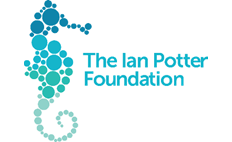Research
The research component of the MHiPS program evaluates the effectiveness of having a trained Mental Health and Wellbeing Leader (MHWL) within primary schools. It investigates the feasibility and acceptability of the training program and the MHWL role, whether the training program increases teachers’ confidence to support student mental health and wellbeing, and the extent to which the training builds the capacity of primary schools to improve student mental health and wellbeing.
The research project comprises multiple phases:
Needs Analysis Phase
Through multiple focus groups and more than 1000 surveys from schools across metropolitan, rural and regional Victoria, the needs analysis phase explored the perspectives of Victorian primary school leaders, teachers, health and wellbeing staff, and allied health support staff.
This consultation collected data regarding (a) the barriers and challenges schools face in identifying and supporting children with potential and recognised mental health concerns, and (b) the programs, interventions and resources they need in order to better promote child mental health competencies and support children with recognised mental health concerns.
Co-design Phase
The co-design phase consisted of two workshops conducted in March and July 2020 with participating pilot schools. The aim was to explore the perspective of pilot schools on the following questions:
- Does the model align with existing mental health and wellbeing programs and practices?
- Do you think the model would be feasible in your school? Why or why not?
- Do you have feedback on developed resources?
- If the model ‘works’, what would you expect to see?
Feasibility Research and Evaluation
Throughout the training phase of the program, data are collected via surveys and focus groups from MHWCs, other wellbeing staff and school leadership to evaluate the feasibility and acceptability of the MHWC role. Feedback has been overwhelmingly positive with results indicating the training addresses the needs of participants in relation to their role, provides new knowledge and skills, and increases participants’ confidence to undertake their role apply their newly learned skills.
Proudly in partnership with
MHiPS would like to acknowledge the Ian Potter Foundation, the Victorian Department of Education and Training, the Helen Macpherson Smith Trust, SALT Catalyst, Bupa, the RE Ross Trust and the R.M. Ansett Trust for their support in establishing the initiative.






